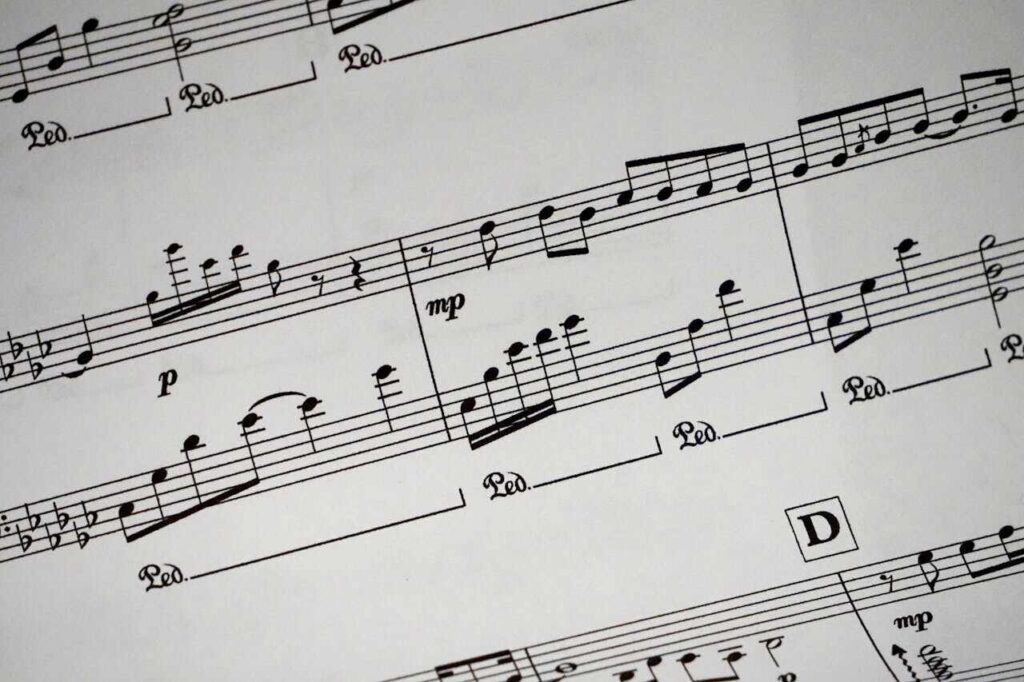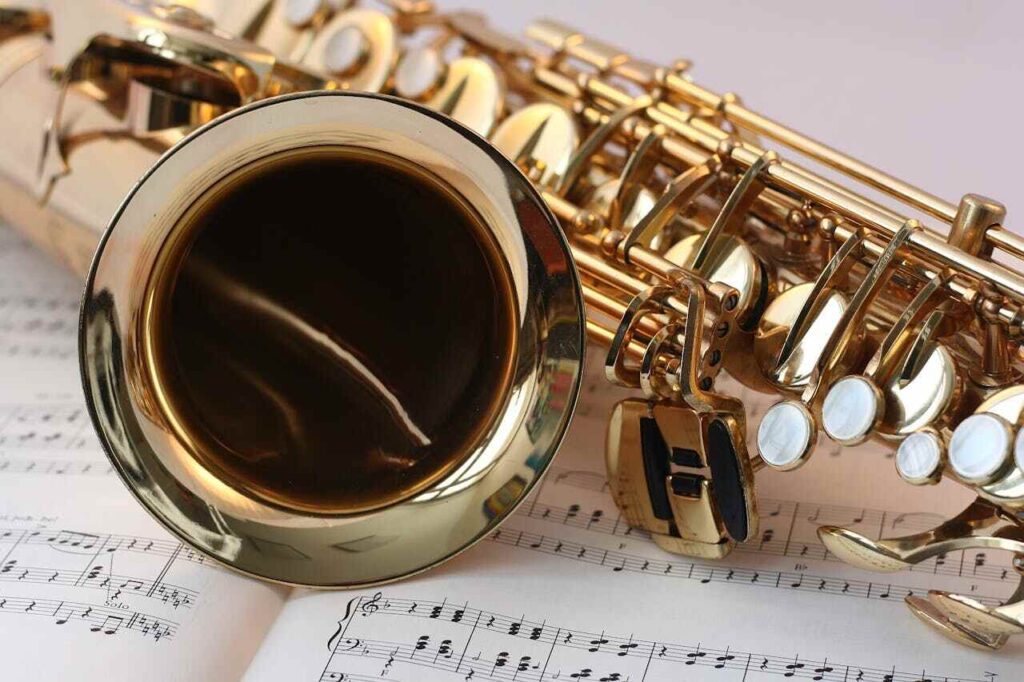I am often asked how to write a Music Extended Essay since I am an experienced IB writer. Writing an essay of this kind is a once-in-a-lifetime chance to combine serious scholarship with an enthusiasm for music. A thorough familiarity with IB requirements and meticulous preparation are necessary for a high-quality Music Extended Essay. In this paper, I will walk you through it all and give you my best advice.
What Makes Music Extended Essay Different?
One of the most distinctive choices in the IB curriculum is the Music EE. While working on this task, you can enter a world where academic rigor intersects with music, culture, and emotion. At the same time, other disciplines mainly concentrate on written language or quantitative analysis.
One of the most important changes is the subject itself. The IB expects your essay to maintain an academic tone and meet specific criteria, even though music is inherently subjective and everyone’s opinion differs. Finding the right balance between these things takes some thought, and I see many IB students having trouble with it.
So, let’s discuss all the unique features of a Music Extended Essay:
- A Music EE differs from many other courses because it often mixes history, theory, and culture. You could look into how a historical event affected a musician’s work.
- You must think critically about compositions or acts. It’s possible to learn about the framework of a symphony, the use of dissonance in jazz, or even the themes in the lyrics of protest music.
- In other courses, essays might rely a lot on external sources, but for the Music EE, you often have to work closely with musical works. The focus is on direct contact with your subject, whether you’re breaking down sheet music or live acts.
- You must discuss the music’s emotional effect and technical components, such as harmony, melody, and rhythm.
It also requires a degree of accuracy and consideration that specific other disciplines may not need. For instance, a Music Extended Essay often calls for creative analysis, but a History EE could let you depend on existing ideas from historians. Saying “This melody is moving” is not enough; you must also provide musical language and proof to support your claim.
How to Conduct Research for Music Extended Essay?
A Music Extended Essay’s research is, in my view, both a privilege and a struggle. Starting with a specific question, referencing reliable sources, and keeping it neat can help you succeed. Remember, the objective is to collect data, actively interact with it, and provide new ideas highlighting your grasp of music.
Start with a Clear Research Question
Determining your focus is the first stage in any research process. This part entails formulating a precise, relevant academic research question for a Music EE. For instance:
- Weak option – “The History of Jazz.”
- Strong option – “How did social changes in 1950s America influence the evolution of bebop jazz?”
A well-defined research question will direct your study and help you eliminate irrelevant data. In my experience, a clear question enables you to stay focused on your investigation and avoid becoming overburdened.
Gather Reliable Sources
Quality is more important than quantity when it comes to sources. Be judicious about what you include in your essay since the IB emphasizes reliable, scholarly sources. The following is a list of trustworthy sources to think about:
- Books – texts on music theory, composer biographies, or historical studies.
- Primary sources – sheet music, recordings, and live performances.
- Internet resources – reputable websites such as museum archives or the International Music Score Library Project.
In my view, combining primary and secondary sources gives your essay a solid and well-rounded basis.
Analyze Musical Works Critically
A thorough examination of musical works or performances is often necessary for a Music EE subject. Your research becomes distinctive at this point. Your analysis should be guided by the research question you selected, emphasizing these components:
- Melody, harmony, and rhythm.
- Instrumentation and texture.
- Cultural or historical context.
For instance, while examining Stravinsky’s The Rite of Spring, explain how it represents musical advances of the early 20th century rather than only describing its discord.

Ask for Feedback and Expert Opinions
Speaking with people about your research may, in my experience, provide new viewpoints and ideas. Talk to your EE supervisor or a Music teacher about your thoughts; they may help you find valuable materials and improve your strategy. Furthermore, reading professional viewpoints in academic publications or essays may improve your comprehension and support your claims.
Stay Organized and Keep Notes
Finding information is just one aspect of effective research; another is handling it. Use resources like an actual notebook or digital note-taking applications to document important discoveries, citations, and concepts. To prevent plagiarism concerns, be careful to credit your sources appropriately. Believe me, maintaining organization will help you write less stressfully in the future.
Conduct Original Research Where Possible
The chance to do original research is one of the unique features of your Music Extended Essay. This part might consist of:
- Evaluating a lesser-known musical composition.
- Contrasting recorded and live performances.
- Examining how the public receives a specific work or genre.
Adding unique research to your essay increases its readability and shows you are more invested in the subject.
Tips for Writing the Music Extended Essay
After your research, it’s time to organize your thoughts into a well-written essay. This step, in my opinion, is often the most difficult for students as it calls for converting unstructured data and analysis into an interesting story.
Write a Strong Introduction
You can establish the tone for the whole essay and capture the reader’s interest immediately in the introduction. Start by outlining your research question and its significance within the musical context. An introduction that begins, for instance, with the question, “How does the use of dissonance in Stravinsky’s The Rite of Spring challenge traditional harmony?” establishes the essay’s parameters and piques interest.
In my view, a strong introduction should also provide a synopsis of the subject. For example, you may discuss jazz’s cultural origins and essential turning points if your essay explores the genre’s development in the 20th century. Thanks to the context provided, your reader will comprehend the significance of your question and its position within the larger area of music.
Lastly, in the EE introduction, describe the essay’s structure. A part that outlines the topics covered in each part makes it easier for the reader to follow your arguments and establishes clear expectations.
Analyze and Discuss Musical Concepts
Your ideas, backed up by data from your research, should be presented in the essay’s body. This is the primary body of your Extended Essay about music, and to keep the reader interested, you must make it coherent. Divide your study into manageable paragraphs or sections that concentrate on a distinct facet of your research question.
Use technical phrases correctly when explaining musical principles, but avoid too much jargon to overwhelm the reader. For example, describe how they enhance a composition’s emotional effect while examining harmonic progressions. Instead of just saying, “This passage uses diminished chords,” explain the significance of the chords and how they affect the music as a whole.
Adding comparisons to your analysis may also improve the body of the Extended Essay. For instance, if you’re studying the cultural influence of reggae, you may contrast its lyrical themes with those of hip-hop or folk music. You can strengthen your analysis with these parallels, showing you can think critically across genres.
Transitional phrases like “however,” “in contrast,” and “similarly” are crucial for keeping your essay coherent. They improve the polish and professionalism of your writing while also assisting the reader in following your points. To keep your essay cohesive and focused, remember that every statement you make should relate to your research question.
Don’t let the stress of the IB curriculum hold you back.
Are you having trouble coming up with topic suggestions for your IB Extended Essay? Or do you need help with Internal Assessment?
Our experienced writers can help you choose the perfect topic and assist you with any assignment.
You can order an Extended Essay tailored to your specific subject and requirements.
Our experienced IB writers are always ready to help.
Simply click:

Write a Persuasive Conclusion
Your chance to make an impact on the reader comes at the conclusion of your Music Extended Essay. A great conclusion highlights the importance of your results and considers the broader ramifications of your research, going beyond just summarizing them.
Restate your research question at the beginning of your conclusion and briefly summarize how your study answered it. For example, if your essay examined Stravinsky’s use of dissonance, summarize the main points that supported your assertion on its transformative influence on conventional harmony.
You should also discuss the importance of your results. Why is your analysis important? Does it reveal a hitherto unnoticed facet of music history, cast doubt on a conventional interpretation, or provide fresh light on a well-known composition? Answering these questions highlights your work’s importance and reaffirms your essay’s scholarly significance.
Finally, think about outlining potential research topics. You may suggest, for instance, looking into how the ideas you studied could be relevant to other composers, genres, or cultural settings. However, because it might detract from the primary points you have already made, refrain from presenting completely new arguments or supporting data.
Final Thoughts
Writing your Music EE, in my experience, requires perseverance, self-control, and a laser-like concentration on your research question. Begin with an engaging introduction, clearly structure your analysis, and conclude with a strong argument. This is your opportunity to shine, so approach it confidently and excitedly!
Our IB Writing Service is here to assist you if you ever feel stuck or want expert advice. Every essay is created from the start by our skilled IB writers to satisfy your specific requirements and beyond your expectations, and we promise 100% originality.

